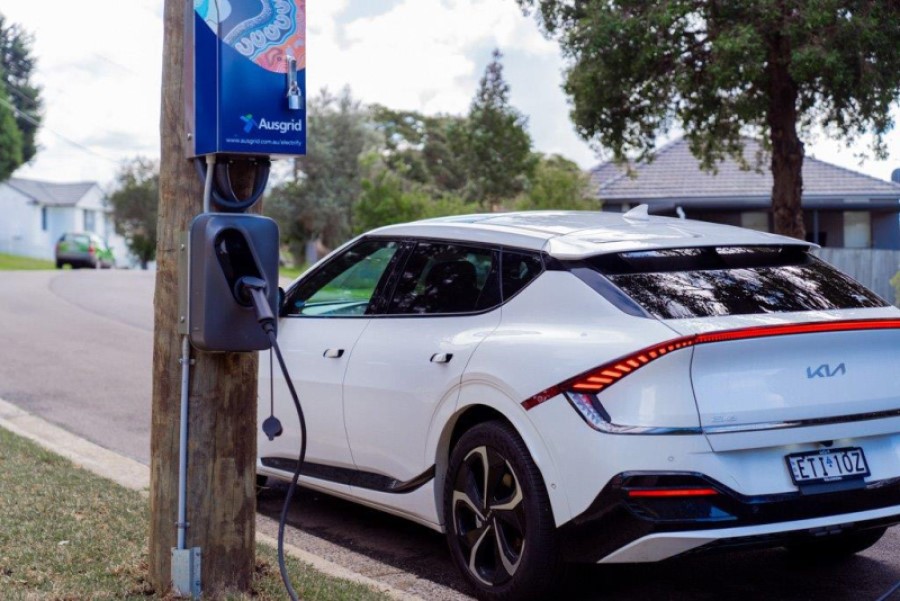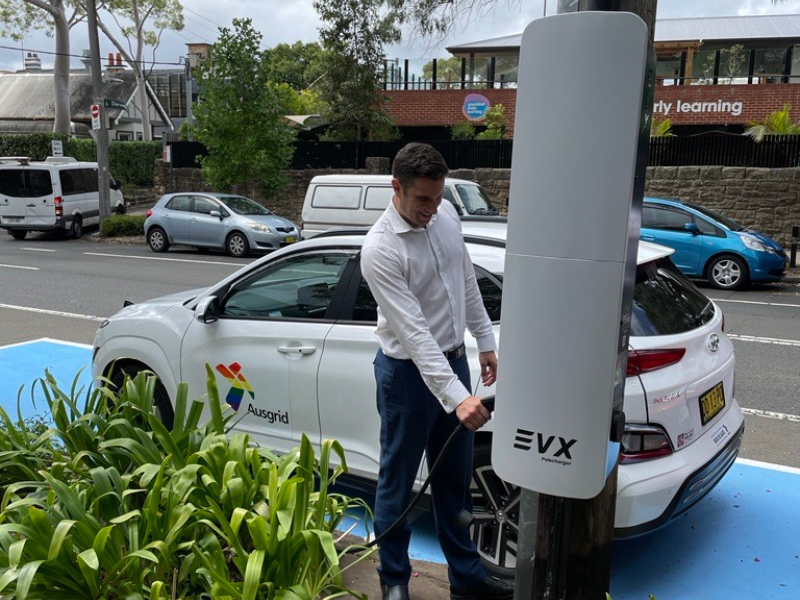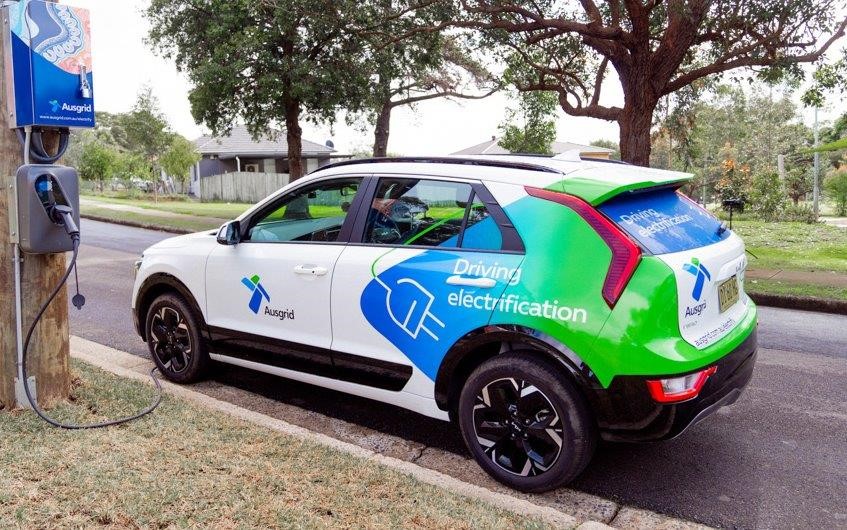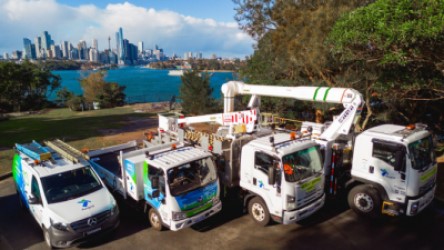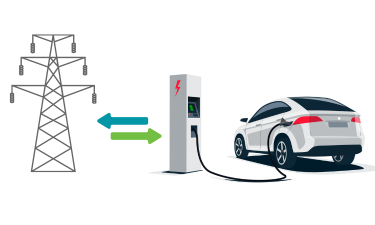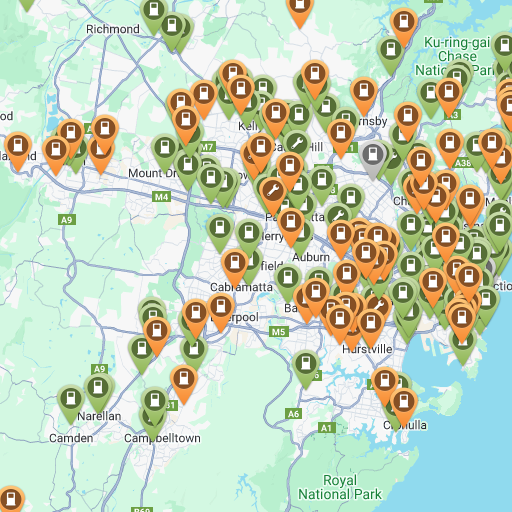Ausgrid is partnering with industry, government, and regulators to trial new ways to provide more localised kerbside electric vehicle (EV) charging, utilising our existing kiosks and power poles.
We estimate that approximately 800,000 customers in our network area have limited opportunities to charge their vehicles at home. This could be due to a lack of off-street parking, high costs, rental agreements, or strata restrictions. All of these factors highlight the importance of public EV charging solutions like kerbside charging in supporting the transition to the electrification of transport.
Leveraging existing assets for a faster, fairer and more seamless solution
Ausgrid has over 440,000 power poles across its network. To create accessible charging access, we estimate that 11,000 kerbside chargers are needed in our network. Pole and substation mounted EV systems avoid the need to dig up the road, helping to deliver public EV charging faster, at lower cost, with less disruption to the community and less clutter on the footpath.
This innovative approach can really support our community by providing access to EV charging infrastructure in residential areas.
How do they work?
People wishing to use a charger pull up and connect directly to the charger using their own Type 2 charging cable. Payments are made via an app or RFID token.
As these chargers are slower AC chargers from 7 up to 22kW they are suitable for longer charging intervals or overnight charging.
In the longer term we’re working on solutions that make payment even more seamless. For example, like residential energy bills, this would be automatic and your car’s use would be billed for its use depending on where, and for how long, it was plugged in.
Ausgrid would like to partner with government, regulators, the community, and industry with the goal of making this vision a reality, and dependant on regulatory reform. Find out more about partnership opportunities.

